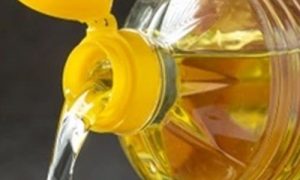States take up oilseeds as summer crops

The government is boosting oilseeds production through the National Mission on Edible Oils, focusing on summer crops like groundnut, sunflower, and sesame in ten states. The initiative aims to reduce edible oil imports by 2032, increasing oilseeds production from 39.2 MT to 69.7 MT. The mission supports local processing clusters, financial incentives, and improved farming practices.
In a bid to boost oilseeds production as summer grown crops (February-June), ten states including Punjab, Haryana, Uttar Pradesh, Madhya Pradesh and Maharashtra have taken up sowing of the groundnut, sunflower and sesame this season, under the national mission on edible oils launched last year.
Officials said states such Punjab, Haryana and Chhattisgarh will be sowing oilseeds for the first time this summer season through creation of clusters, states including Assam, Bihar, Uttar Pradesh, Madhya Pradesh and Maharashtra would step up taking of oilseeds during the next couple of months.
Earlier oilseeds were grown only during kharif and rabi seasons, summer sown oilseeds is expected to boost overall output leading to enhanced area and increase in crop intensity, officials said.
Under the Rs 10,103 crore national mission, the government is aiming to reduce imports of cooking oils to 28% of the country’s annual consumption from the current level of 57% by 2032 by increasing output through area expansion as well as introduction of higher yielding seeds and financial incentives for the processors.
“Through local level clusters, farmers would be able to sell oilseeds to local processing partners who would be provided subsidised finances,” an official told FE. According to the official, through local processing partners or collectives, farmers would not need to sell their produce at wholesale markets, instead local processors in the clusters would buy back the produce.
In recent years, import of oil seeds has grown at a fast pace. Edible oil imports in the oil year 2023-24 (Nov-Oct) stood at Rs 1.31 lakh crore, marginally lower than in the previous year. The country imports palm oil, soybean and sunflower in large quantities.
The government has set a target to raise edible oil production by 64% to 20.18 million tonnes (MT) per annum by 2032 from 12.3 MT at present.
According to an official note, the oilseeds output is expected to increase from the current level of 39.2 MT to 69.7 MT by 2032 while the area under oilseeds is expected to rise to 33 million hectares (MH) from 29 MH. “Around 27% of increase in edible oil production would come from area expansion while a major chunk of increase in production would be from new varietal development,” the official said.
The government has identified 1.12 MH of rice fallow where the land remains unused after harvesting for the production of oilseeds in Odisha, West Bengal, Bihar, Chhattisgarh, Madhya Pradesh and Maharashtra.
The official said over 600 value chain clusters will be developed across 347 unique identified districts, covering more than one million hectares annually. These clusters will be managed by value chain partners such as farmers’ producers organisations (FPOs), cooperatives, and public or private entities.
The financial support under the mission is being provided for breeder seed production in the 65 seed hubs, the official said. Farmers in these clusters will have access to high-quality seeds, training on Good Agricultural Practices (GAP), and advisory services on weather and pest management.
The continuation of the Pradhan Mantri Annadata Aay Sanrakshan Abhiyan (PM-AASHA) would ensure that oilseed farmers receive MSP through price support scheme and price deficiency payment scheme, according to officials.
Officials said 20% import duty on edible oils has been imposed to protect domestic producers from cheap imports and encourage local cultivation.
To read more about Edible Oil News continue reading Agriinsite.com
Source : Financial Express















